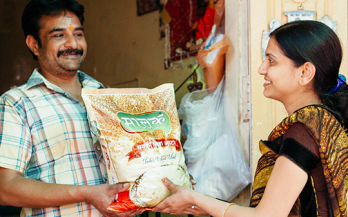The objective of this study was to assess the effects of prenatal home (point‐of‐use) fortification of foods with multiple micronutrient powders on maternal and newborn health.
Researchers acknowledge that the majority of nationally-representative data on Vitamin A supplementation (VAS) status is outdated. This study examined data from 82 countries implementing VAS programs, identified other VA programs, and assessed the recentness of national VA deficiency data.
The purpose of this study was to examine the potential contribution of fortification of vegetable oils with vitamin A in Indonesia and Malaysia to increasing vitamin A consumption in these two countries and in countries to which oil is exported.
Despite considerable progress made in the past decade through salt iodization programs, over 2 billion people worldwide still have inadequate iodine intake. This study validates a newly developed device that quantitatively measures the content of potassium iodate in salt in a simple, safe, and rapid way.
‘Implementation research in nutrition’ is an emerging area of study aimed at building evidence‐based knowledge and sound theory to design and implement programs that will effectively deliver nutrition interventions. This paper describes some of the basic features of ethnography and illustrates its applications in components of the implementation process.
This study set out to assess if universal salt iodization provides sufficient dietary iodine to meet the iodine requirements and achieve adequate iodine nutrition in all vulnerable population groups.
The aim of this study was to generate preliminary theories about factors affecting adherence to recommendations with regard to point-of-use fortification of foods with micronutrient powders. This study concluded that in order to achieve programs that support greater adherence, there must be an adoption of a cultural-ecological perspective to inform program design in order to address a broader set of determinants.
This study describes features of the landscape of behaviour change communication practice devoted to infant and young child feeding in low‐ and middle‐income countries by practitioners in international development organizations.
The Global Alliance for Improved Nutrition (GAIN) was established in 2002 with a mandate to galvanize efforts by the public and private sectors to end malnutrition. This paper describes GAIN's evolution from a large-scale food fortification program focus to a broader nutrition program portfolio directed toward improving access and affordability of nutritious foods for the poor.
This work aimed at assessing the combined influence of different factors on vitamin A retention and the oxidative status of wheat flours: storage duration, temperature during storage, relative humidity within storage facilities, type of packaging, and premix composition.










